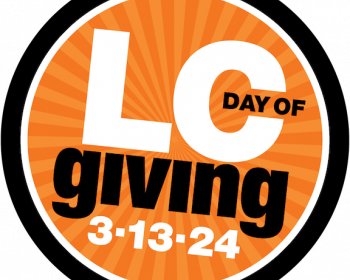2011 Tax Law Changes: Are You Affected?
The beginning of a new year brings new changes to federal taxes—estate taxes, that is. As of Jan. 1, 2011, federal estate tax laws have undergone major adjustments. The most notable being the reinstatement of the estate tax at the $5 million level. Check out the “Quick Reference Guide” below to learn more about what changed this year.
What This Means for You
Most of us know that we need an estate plan to determine who gets what from our assets when we are gone. Plus, we know that without a valid will, we are leaving it up to the state to determine who gets the majority of our assets and belongings. Now, with the estate tax threshold temporarily raised to a $5 million mark, for many of us, estate tax planning won’t feel so necessary in the short term. The important part is deciding who gets what from our estates.
Quick Reference Guide: Major Federal Tax Law Changes
- In 2010, federal estate taxes were originally repealed, meaning that for everyone who died in 2010, regardless of how wealthy they were, their estates wouldn’t have paid a penny of federal estate taxes. Plus, in general, those who inherited assets in 2010 would have inherited them with a carryover cost basis, which means they would have inherited them at the same cost basis that the deceased had originally paid for the assets. But with recent law changes by Congress, the estate tax was reinstated for 2010 with a $5 million basic exclusion amount, a 35 percent maximum tax rate and the more favorable stepped-up cost basis (a cost basis equal to the fair market value as of the date of the deceased’s death, or, in some cases, six months later) for inheritors.
- Executors of 2010 estates have the choice of using the $5 million estate tax exclusion structure or the repeal of estate tax. The catch is that estates that use the repealed tax have the less favorable tax structure for inheritors in that they receive assets with a carryover cost basis, not a stepped-up basis. In 2011 and 2012, beneficiaries inherit assets with the more favorable stepped-up cost basis.
- For those who die in 2011 and 2012, the basic exclusion amount remains at $5 million. Therefore, every dollar owned above the $5 million exclusion amount will be subject to federal estate taxes at death at a maximum rate of 35 percent. For married couples who both die during these two years, if the first spouse to pass had any unused exclusion amount, the couple may be able to pass a combined estate worth up to $10 million free of federal estate taxes (commonly called a portability provision). In 2013, the basic exclusion amount will drop to $1 million and portability between spouses ends, unless Congress makes further changes.
- The exemption level for generation-skipping transfer taxes is also $5 million with a federal tax rate of 35 percent. This means that if you leave more than $5 million in property to a grandchild or anyone two or more generations younger than you, your gift will incur an additional tax. This $5 million exemption is only applicable in 2011 and 2012.
- The top gift tax rate is 35 percent with a $5 million exclusion amount unified with the estate tax exemption. The annual gift tax exclusion—the amount you can give to anyone gift tax–free each year—will remain at $13,000 in 2011 ($26,000 for married couples).
- Income and capital gains tax rates will remain the same for individual tax payers in 2011 and 2012.
Your Next Steps
Review your plans with your estate planning attorney as soon as possible to determine if any part of your plan needs updated for the new laws. If an update is in store, consider using that time to include a gift to Lewis & Clark. Contact Sharon Bosserman-Benson for the Undergraduate or the Graduate School at 503-768-7911, 800-753-9292, or plangivg@lclark.edu, or the Law School development office at 503-768-6901 or lawgive@lclark.edu.
| Prepare for your meeting with your attorney with our FREE eBrochure on the estate planning process. |
Copyright © The Stelter Company, All rights reserved.
The information on this website is not intended as legal or tax advice. For legal or tax advice, please consult an attorney. Figures cited in examples are for hypothetical purposes only and are subject to change. References to estate and income taxes apply to federal taxes only. State income/estate taxes or state law may impact your results.
More Giving Stories
email giving@lclark.edu
voice 503-768-7900
Vice President for Advancement
Josh Walter
Advancement Office
Lewis & Clark
615 S. Palatine Hill Road MSC 57
Portland OR 97219

